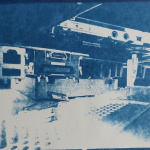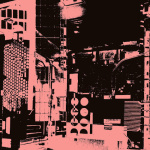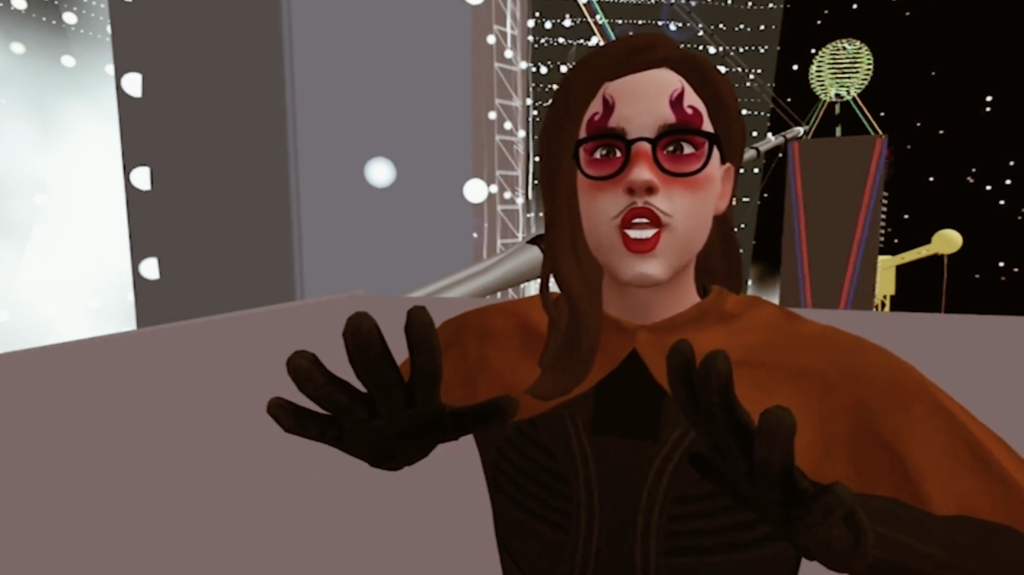Queer ec(h)o – Final chapter: Looking back, looking forward.
This is the final chapter of Queer ec(h)o’s artistic and emotional journey. We have come to an end, or have we? This Artist Residency was drenched and pervaded by various emotions, artistic and technological materialities, and social significance. As a gay man, this process was profoundly meaningful to me, as I was able to connect with my own history and inner thoughts to ultimately try to unveil the connection between today’s climate emergency and how we might be able to learn from queer justice as to operate awareness and advocacy within environmental crisis.
The first phase of this work, where I acted as a kind of digital ethnographer, engaging in random interactions on VRChat, proved to be extremely insightful as I got a glimpse of what these emergent communities – living through their avatars and seemingly puppeteering digital skins that materialise alter egos or idealised versions of themselves – are all about. In turn, this is strongly connected with today’s hyped idea of the upcoming ‘metaverses’ and how distinct social interactions are and will become in these digital embodied realities.
How will we define human identity on individual and communal levels, as we start to spend more and more time in these virtual worlds? How is violence, abuse, hate and prejudice going to be assessed, understood and tackled within these metaverses? For now, it seems to me that these worlds are rather chaotic. Most of my encounters on VRChat were with people that seemed to use these alternate realities as a kind of emotional stress release mechanism. Yelling, shouting, cursing: no limits.
Performing in the metaverse with my avatar, I felt strangely liberated
On the flip side, I met some people that took the time to engage in an actual conversation, being polite and bringing to the table their thoughts and ideas on the social topics underlying this Residency. In the midst of apparent general chaos, these very few people that responded positively to my inquiries become crucial in generating critical discussion; but mostly they have established themselves as a kind of a counterpoint in relation to the previously mentioned chaos.
In this sense, I wonder if we could use these emergent social virtual reality worlds as platforms for creating, structuring and curating safe places where true public deliberation might be triggered and promoted. I have found very few places like this on VRChat, but the ones I saw seemed like a good start for considering the affordances of social virtual reality to engage with serious issues, externalising emotions, and ultimately generating discussion that might trigger some form of agency in the ‘real reality’.
As I was performing in the metaverse with my avatar, I felt strangely liberated, as if a nuanced version of my personality was coming through that digital skin. In its essence, it was me, but the dramaturgic aura revolving around my avatar – with its long hair, makeup and extravagant outfit – allowed for some ‘hidden’ emotional substance to surface and become one with that world, with that moment. Combining this unusual performative dimension with poetry and music closed the circle for me as an artist, and the final work felt complete and through it some critical questions emerged:
Is it possible to draw on the LGBT+ history of fighting for social justice to generate a response towards climate crisis?
Will climate catastrophes have a worse impact on LGBT+ people, given their historical and current struggles?
Will emerging communities driven by today’s technologies, and those of the future, have the potential to generate innovative spaces and dialogue for realising climate and queer justice?
Can artworks like mine be considered ‘micro-interventions’ to trigger social change?
How can we move from mere acknowledgement of social and environmental crises towards tangible, compassionate actions?
How can we move beyond social agendas as lifestyle narrative placebos and try to actively come up with palpable solutions for climate change?
How can we go from micro-impact, to social change, to social development?
I rest my case. The floor, dear reader, is now yours: to echo the eco crisis through a queer lens or any other perspective that might help us all outline a future where justice might be something more than a buzzword. Wouldn’t that be great?
António Baía Reis







